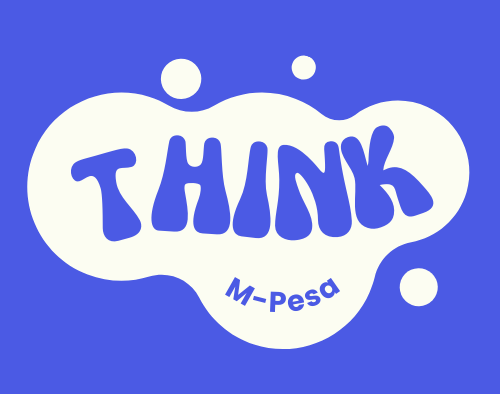Productivity can significantly improve when you harness the power of music in your daily routine. Studies reveal that listening to your favorite tunes can elevate your mood, enhance focus, and boost overall productivity levels. However, be aware that not all music creates the same effect; the wrong genre could lead to distractions and decreased efficiency. By understanding how different types of music influence your emotions and work output, you can create a tailored playlist that effectively transforms your workspace into a hub of creativity and accomplishment.
The Science of Music and Mood
While many people intuitively understand that music can influence their feelings, the scientific community has taken significant interest in uncovering the intricate relationship between music and mood. Various studies have shown that music can evoke a broad spectrum of emotions, from joy and nostalgia to sadness and anger. You may notice that the playlist you choose not only sets the tone for your day but can also alter your productivity levels. This connection lies at the heart of how your brain processes sound and emotion, revealing the powerful potential of melodies and harmonies to shape your psychological landscape.
Psychological Theories
Mood is often influenced by the types of music you listen to, with different genres eliciting varied emotional responses. Theories such as the Affective Music Theory suggest that you experience emotions through a complex interplay of personal associations and cultural connections to different sounds. Understanding these psychological components can enable you to make more intentional music selections to enhance your overall well-being and focus.
Neurological Responses
Responses to music are not only psychological but deeply rooted in our neurological wiring. When you listen to a song that you find enjoyable, your brain releases neurotransmitters like dopamine and serotonin, which are often referred to as the “feel-good” chemicals. These responses can create a sense of pleasure, reduce stress, and even enhance cognitive function, heightening your potential for productivity.
At the same time, music can also trigger specific emotional pathways in the brain, impacting areas that manage memory and emotion. This means that the right playlist can not only enhance your mood but can also lead to improved focus and creativity in your work. Understanding these neurological responses allows you to harness the power of music as a tool for enhancing your productivity and improving your overall emotional health.
Genres of Music and Their Effects
If you are looking to enhance your mood and productivity through music, understanding the different genres and their effects can be incredibly beneficial. Various types of music can evoke different emotions or states of mind, and recognizing these can help you curate your playlists to suit your needs at any given moment. From upbeat tunes that energize you to soothing melodies that calm your thoughts, the right music can be a powerful tool for managing your mental state.
Uplifting Music
Among the genres that have a profound impact on your mood, uplifting music stands out as particularly effective in boosting your spirits and increasing your motivation. This genre often includes pop, dance, and upbeat electronic music that employs catchy rhythms and positive lyrics. Listening to uplifting music can elevate your mood, making you feel more enthusiastic and energized, particularly during tasks that require a burst of creativity or focus.
Calming Music
Across various settings, calming music has been widely recognized for its ability to reduce stress and anxiety. This genre typically comprises classical, ambient, or soft instrumental music that features gentle melodies and slow tempos. Engaging with calming music can create a serene environment, helping you to find peace in your surroundings or focus better during challenging tasks without feeling overwhelmed.
Further exploring calming music reveals its significant role in improving mental health and well-being. When you listen to calming tunes, you may experience a decrease in heart rate and a reduction in cortisol levels, enhancing focus and creating a tranquil atmosphere. Incorporating more of this genre into your daily routine can positively influence your overall mood and increase productivity while providing a welcome respite from the chaotic demands of everyday life.
Music in the Workplace
The integration of music in the workplace has transformed the way you can approach tasks, fostering an environment that encourages both creativity and productivity. Many companies have recognized the benefits of allowing employees to listen to music during their work hours, with studies showing that background music can lead to increased focus and motivation. Whether you prefer classical compositions or upbeat pop tracks, selecting the right genre can help you establish a productive rhythm that aligns with your work style.
Enhancing Creativity
Among the various benefits of incorporating music into your work routine, the enhancement of creativity ranks high. Research indicates that listening to music can stimulate your brain and push you to think outside the box. By creating an uplifting auditory environment, music can trigger your imagination, allowing ideas to flow more freely. This means that as you work on complex projects, the right playlist can lead to innovative solutions and a burst of creative insight.
Reducing Stress
Stress in the workplace can significantly impact your overall productivity and wellbeing. Adding music to your daily routine can serve as an effective tool to alleviate tension and shift your mood. Listening to soothing melodies or your favorite tunes can foster a sense of calmness, helping to drown out distractions and lower anxiety levels. This integration can enhance your focus, making it easier for you to navigate through demanding tasks.
Consequently, by creating a harmonious work atmosphere with music, you may find that your stress levels decrease significantly. Engaging with melodic sounds can lower your blood pressure and promote a sense of relaxation, making even the most challenging projects more manageable. Utilizing this powerful tool can not only help you maintain a positive mindset but can also improve your overall workplace experience.
The Role of Personal Preference
Unlike the generalized impact that certain types of music may have on mood and productivity, your personal preference plays a pivotal role in how you respond to music during various tasks. The connection between music and emotional responses is deeply influenced by your individual taste, prior experiences, and the context in which you listen. For some, upbeat pop tunes might energize them and enhance productivity, while for others, classical symphonies might provide a soothing backdrop that fosters concentration. This variance demonstrates that adhering to a one-size-fits-all approach in selecting music is often ineffective; instead, you must consider your own inclinations to optimize the beneficial effects of music on your work and mood.
Individual Differences in Response
Around the globe, individuals exhibit widely differing responses to the same musical stimuli. Research indicates that factors such as age, cultural background, and personal experiences can significantly shape your musical preferences. For example, while younger individuals may gravitate towards high-energy genres like electronic or hip-hop to stay motivated, older individuals might find more solace in jazz or folk music, which may evoke nostalgia or relaxation. Understanding these individual differences can aid you in curating a more effective musical selection that aligns with your unique emotional and productivity needs.
Creating a Personalized Music Environment
By taking the time to create a personalized music environment, you can significantly enhance your mood and productivity levels. Start by exploring various genres and artists to identify what resonates with you during different tasks. Consider making playlists tailored to specific activities—perhaps high-tempo tracks for exercise or calming instrumentals for focused work. Additionally, be mindful of the acoustic setting; background noise can sometimes be distracting, and you may want to invest in quality headphones or speakers to fully immerse yourself in your chosen soundscape.
And don’t shy away from experimenting with different musical environments. Listening to live music, attending concerts, or discovering new playlists on platforms you enjoy can enrich your overall experience, offering an opportunity to connect with music in diverse ways. Furthermore, as your preferences evolve over time, keep adjusting your playlists accordingly to maintain that sense of engagement and motivation. Ultimately, finding a personalized musical approach tailored to your unique tastes can transform your workspace into a more productive and enjoyable setting.
Practical Applications
Not only can you enjoy music in social settings, but you can also leverage its effects for better mood and productivity in your everyday life. Understanding how to use music as a tool can make a significant difference in your performance whether you’re working, studying, or engaging in creative activities. By strategically integrating music into your routine, you can foster a more engaging and effective environment that supports your goals.
Techniques for Utilizing Music
With a wealth of research backing the relationship between music, mood, and productivity, you can experiment with different techniques to optimize your experience. For instance, creating playlists tailored to specific tasks can help you maintain focus and enthusiasm during monotonous work. Upbeat and energetic tracks may lift your spirits while tackling mundane chores, while softer melodies could enhance your concentration during more demanding projects. By being intentional about your music selection, you can effectively amplify your mood and productivity.
Music in Educational Settings
Above all, incorporating music into educational environments has proven to be beneficial for both students and educators. By using music as a background during study sessions or lectures, you can create a calming atmosphere that facilitates increased learning retention as well as overall engagement. Not only does this approach help in reducing stress, but it also encourages creativity and collaboration among peers.
A growing body of evidence suggests that music can positively influence cognitive development in students. Whether it’s through playing soft instrumental music during independent work or integrating musical lessons into the curriculum, you can harness music’s power to enhance overall academic performance. Furthermore, using music can build a spirited community in the classroom, encouraging cooperation and camaraderie among students, which can further enrich the learning experience. Understanding these dynamics allows you to maximize the benefits of music in educational settings, leading to improved well-being and success for everyone involved.
Limitations and Considerations
After examining the relationship between music and your mood and productivity, it’s imperative to address certain limitations and considerations that may impact your experience. You might find that certain music choices can lead to unintended distractions, especially in work or study environments. While melodies can enhance your focus, lyrical content or complex compositions can divert your attention away from tasks at hand. It’s imperative to thoughtfully curate your playlists, opting for instrumental tracks or familiar tunes that keep you engaged without overwhelming you.
Potential Distractions
Considerations of potential distractions come into play when introducing music into your work routine. If you find yourself frequently pausing to sing along or getting lost in the rhythm, this could hinder your overall productivity. You should evaluate how certain genres or styles affect your concentration, as fast-paced or lyrical music can fragment your focus. Experiment with different types of background sound to find a soundscape that fosters your productivity rather than interferes with it.
Cultural Influences
One must also take into account the cultural influences that shape your musical preferences and how they affect your mood and productivity. Music deeply intertwined with your cultural background may evoke strong emotional responses and memories that can motivate or distract you. This influence can vary widely; for example, certain genres might bring feelings of nostalgia or happiness, while others may elicit stress or sadness. It’s imperative to recognize these personal associations when selecting music to enhance your overall productivity.
This connection to music and cultural identity is profound; you may find that your localized musical styles resonate with you on a personal level. Understanding how your culture informs your emotional reactions to different types of music can help you make more conscious choices about what to listen to. By aligning your music selections with your own cultural context, you can potentially enhance your productivity while maintaining a positive emotional state.
To Wrap Up
Presently, it is evident that the power of music extends beyond mere entertainment; it has a profound influence on your mood and productivity. Engaging with specific types of music can elevate your emotional state, enhance your focus, and even boost your creativity. You have the ability to curate your auditory environment to align with your personal and professional goals, allowing you to tap into the emotional and cognitive benefits that music provides. Choosing the right playlist can make all the difference in how you approach your tasks and how effectively you accomplish them.
As you integrate music into your daily routine, pay attention to how different genres and tempos affect your mindset and output. Whether you seek tranquility through classical compositions or energy through upbeat pop, your choice of music can become a valuable tool in your arsenal for improving productivity and managing your emotions. By harnessing the impact of music wisely, you can create a more enjoyable and efficient working or studying experience, ultimately leading to greater satisfaction and achievement in your endeavors.




